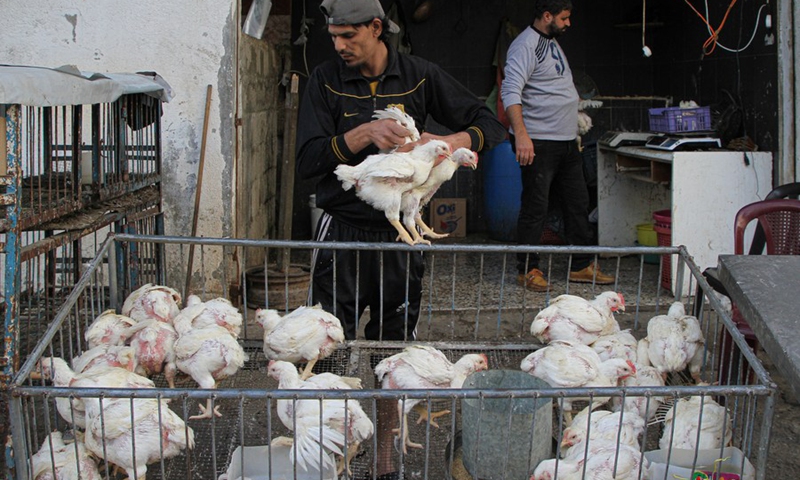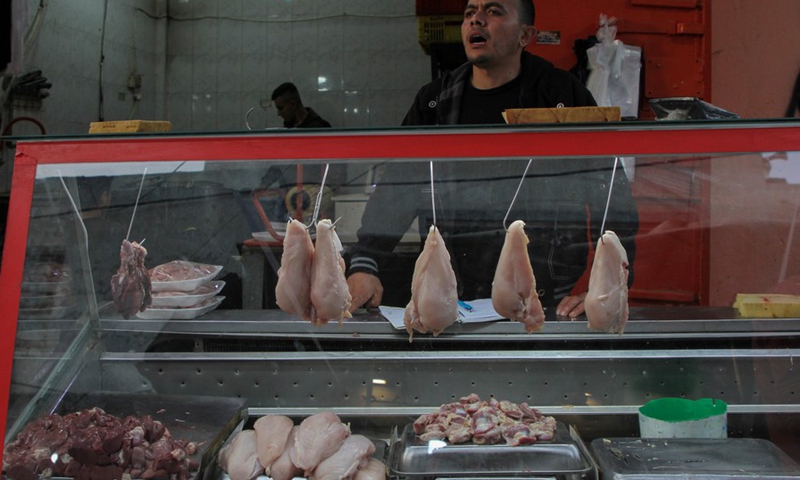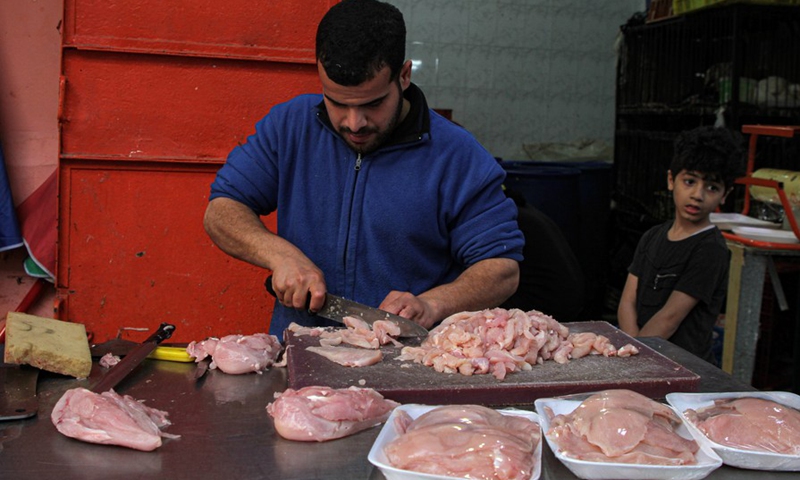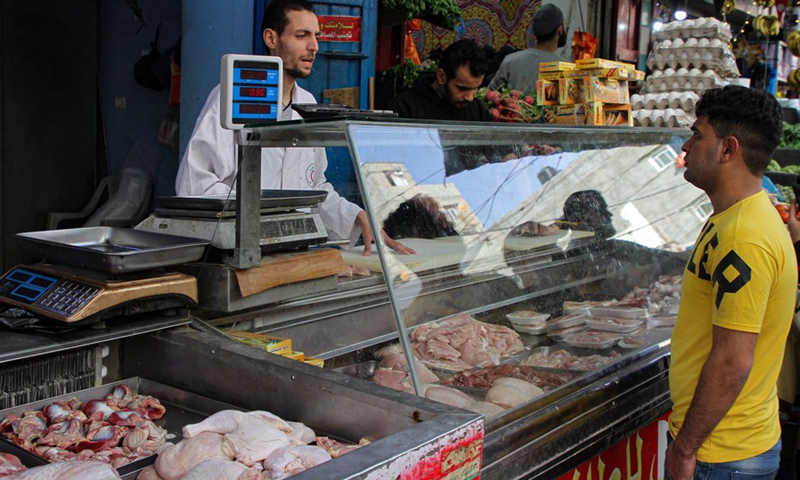
A vendor sells chicken at a market in Gaza City, April 6, 2022.(Photo: Xinhua)

A vendor sells chicken meat at a market in Gaza City, April 6, 2022.(Photo: Xinhua)

A vendor cuts chicken meat at a market in Gaza City, April 6, 2022.(Photo: Xinhua)

A vendor sells chicken meat at a market in Gaza City, April 6, 2022.(Photo: Xinhua)
Soaring poultry prices have kept chicken, an iftar dinner basic, off many household holiday menus during the Muslim holy month of Ramadan in the Gaza Strip.
For six days in a row, Sohaila Abdel Hady, a mother of seven from Deir al-Balah in central Gaza, couldn't afford to cook a chicken for her family. Instead, she chose frozen bovine meat imported from Israel as a cheaper replacement.
"My husband works as a day laborer in a local factory, and he can barely earn 10 U.S. dollars a day ... it is not enough to buy one chicken," the 46-year-old woman told Xinhua.
For several weeks, Gaza markets have witnessed a remarkable increase in the prices of poultry, as the per kg unit price of chicken has reached 5.5 U.S. dollars for the first time in years.
The item cost 1.5 dollars per kg at most before Ramadan, according to the locals.
In the Al-Bashir Poultry and Meat Mall in Gaza, chickens were sold at a price range out of reach for most Palestinian families, said Fayez al-Ejla, a worker at the mall, told Xinhua.
Expressing support to those consumers who see traders and farm owners' price-fixing behind the recent hike, the mall has left its refrigerators empty with a banner noticing "chicken out of stock due to high prices."
"We boycotted purchasing from (these) traders and farm owners because they monopolize prices and want to set the price they want. They are not concerned about the fact that most families suffer from difficult economic conditions," al-Ejla said.
The Hamas-run Economic Ministry announced it has tightened up measures to counter monopolist influence on basic commodities prices while saying bird flu in other breeder countries has led to a supply shortage in Gaza.
Abdul Fattah al-Zuraei, an undersecretary of the ministry, told a press conference on Tuesday that indicative prices for commodities have been issued in the local market, and traders who raise food commodities prices will be held accountable.
Ayman al-Yazuri, an undersecretary of the Agriculture Ministry, said the ministry imports some 3 million eggs per month from Israel, European countries, and North America to cover the needs for broiler chickens.
"As a result of bird flu exposure in egg-producing countries in January and February, hundreds of thousands of mothers of broiler chickens were culled, slashing the quantity of fertilized eggs of broiler chickens in the Gaza Strip," Al-Yazuri added.
In a bid to overcome the poultry crisis, Gaza has started importing fertilized eggs from Egypt. About 1 million such eggs entered Gaza in March, with more to come.
Israel has imposed a tight blockade on Gaza, a Palestinian enclave home to 2 million people, since mid-2007, which led to a notable deterioration of economic and social conditions.
According to the Euro-Mediterranean Human Rights Monitor, about 1.5 million Gazans have become impoverished due to the Israeli siege.
